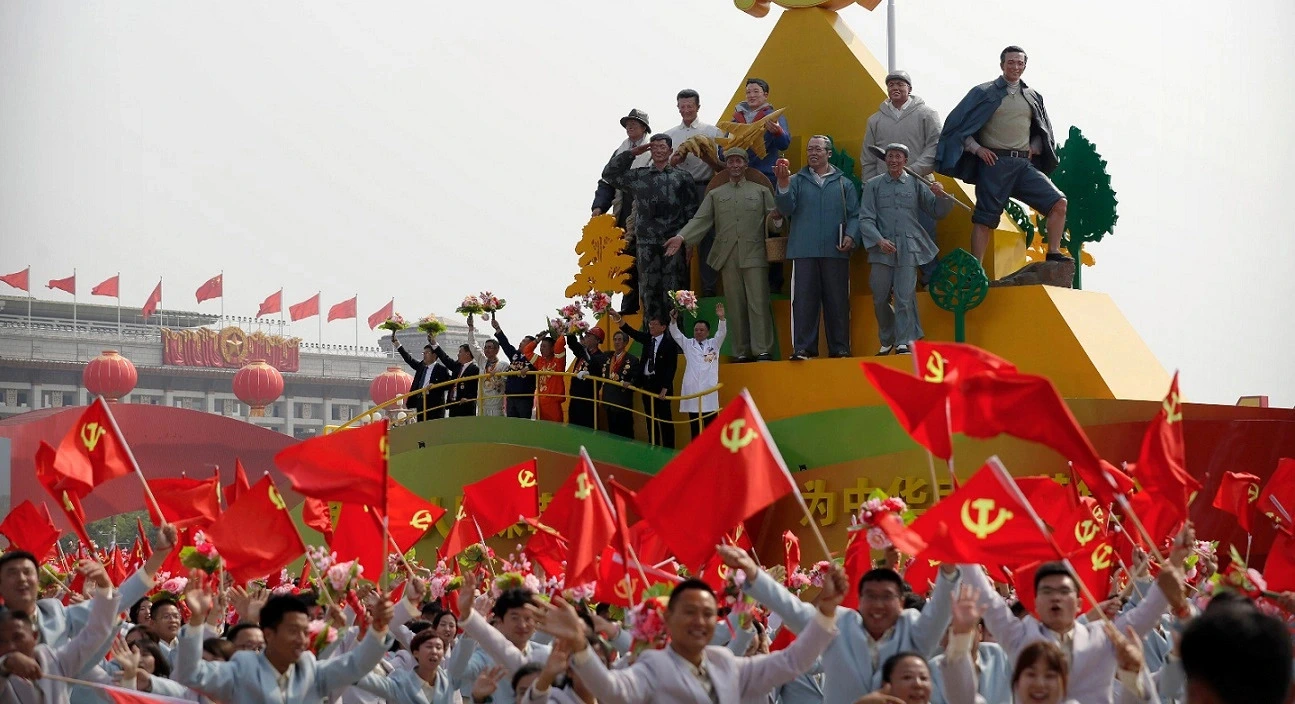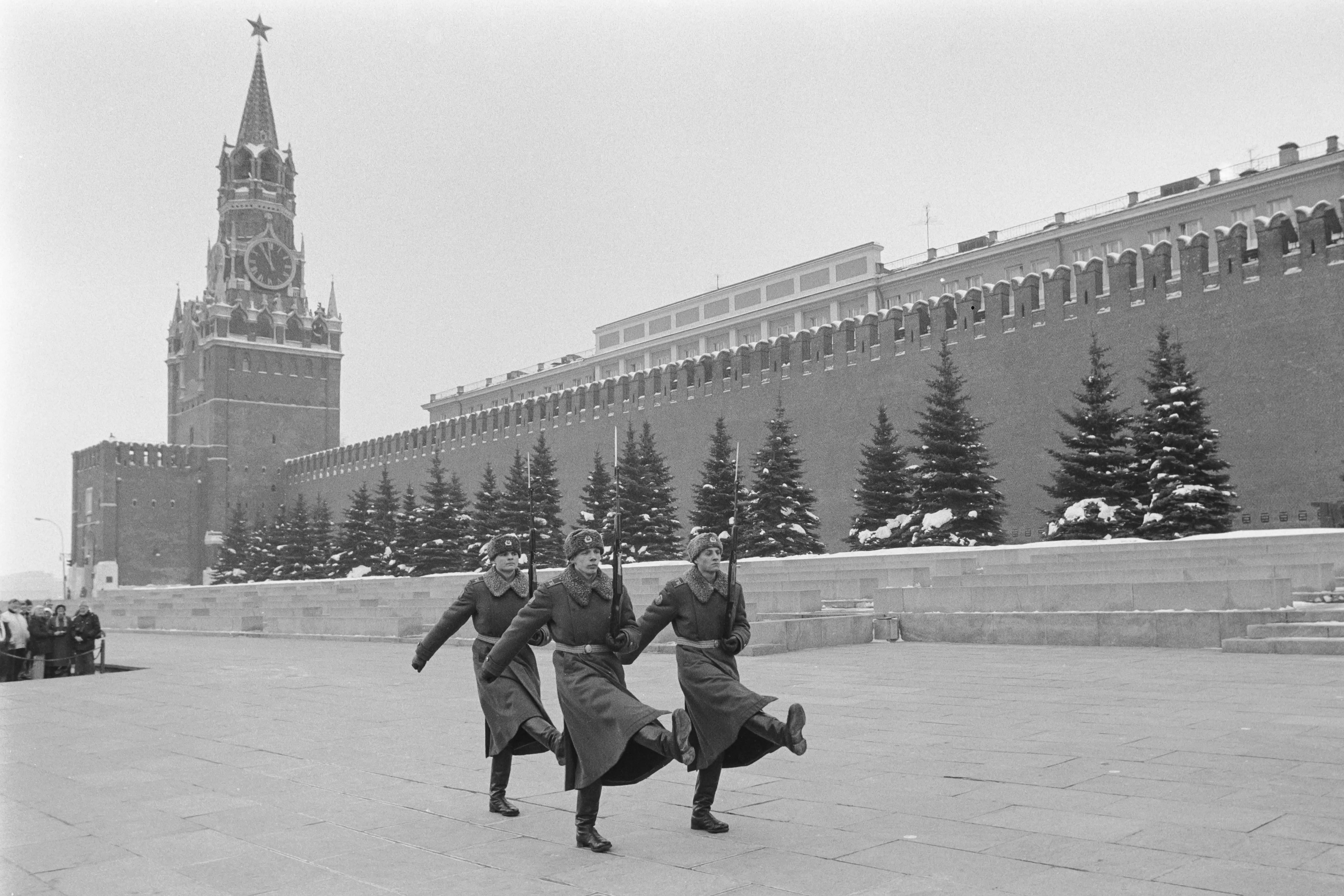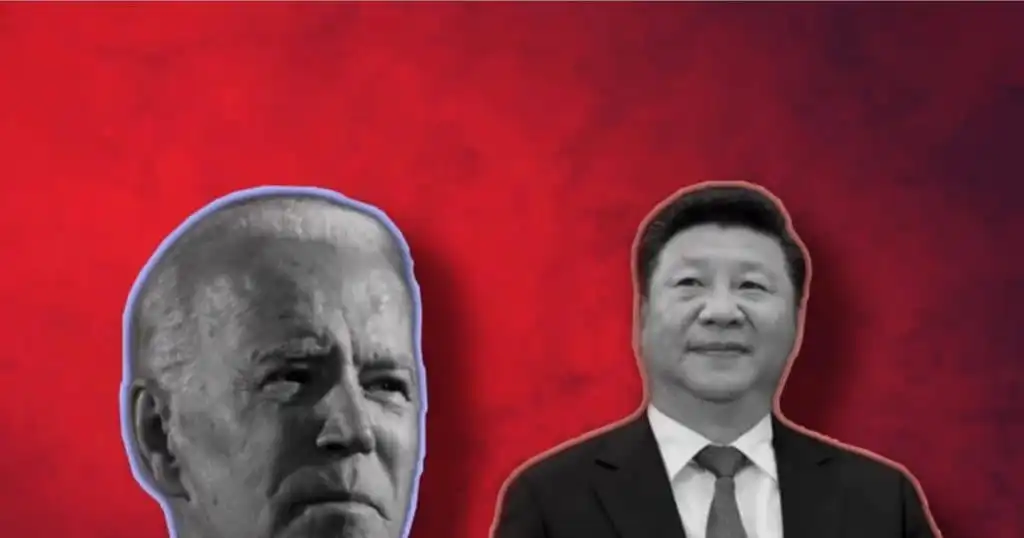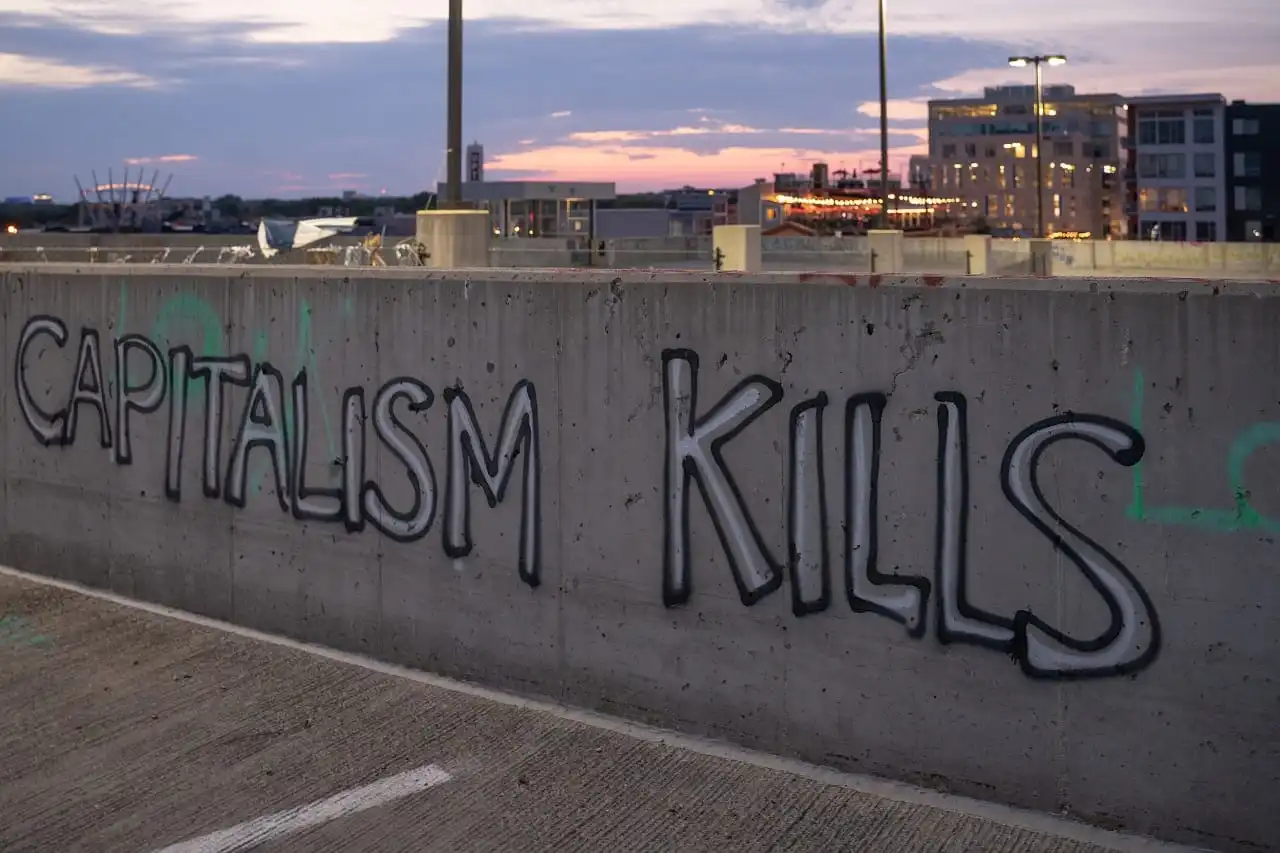In the 1990s and 2000s conventional Western wisdom was that China had long abandoned socialism. But by 2018, when president Xi Jinping lauded Marx as the greatest thinker of modern times at the closing speech of a 2-week celebration of his 200th anniversary and reaffirmed China’s commitment to his vision of communism, many on the left – and the right – were willing to take him seriously. I sat down to long-term expat Keith Lamb, a socialist from Scotland and commentator for the CGTN news agency, for an informal interview on life in China, its political system, its contradictions and its vision for the world.
What lead you to move to China in 2004? How do you support yourself out there, and where?
I finished at Glasgow University really wanted to continue studying. Learning a language seemed like a good thing and Chinese I considered the hardest so I chose that. I chose China not only because of the difficulty of the language but also because I saw it was developing and I really knew so little of the place. In 2004 my plan was to go over and work for a couple of years or two, master the language and then go somewhere else. I supported myself originally through teaching.
I was in a few places Shijiazhuang, Nanjing, Beijing but for most of the time in Xiamen, and life just took over. I opened up a Brazilian Jiujitsu school in Xiamen which I started as a socialist project. We taught students for free and if they wanted to donate money they could. The school ended up turning into a business, but it will never make anyone rich – it’s more of a very serious hobby.
Are you ‘free’ to have this conversation? In the West we are given the impression that all conversations are closely monitored, and critics of the government found out and punished. Are you allowed to say what you are aren’t allowed to talk about?
You can talk about anything you want - I've never found that to be a problem. In many ways I find it's actually more free because they don't have political correctness in the way we do in the UK. Publishing something in a paper though — that's another thing. There is all sorts of talk online. Everyone says conversations get deleted, but I've seen loads of slagging-off online — so far nothing I've said has been deleted, but I have had my comments deleted a few times before in the West on the Guardian no less. I'm not saying it's not a thing, obviously censorship does take place. Certain websites are blocked in China.
Topics themselves aren’t banned, it’s more how or where you talk about them. For example, in many universities and schools there will be a clause in the contract not to proselytize or talk about independence issues such as Tibet and Taiwan. Talking outside of class privately is not a problem. I have met large numbers of Americans who are in China for the purpose of converting people to Christianity.
And they aren’t sent to re-education camps?
No, they are not sent to re-education camps. They're usually well received because many Chinese people want to learn English and the missionaries tend to be very patient. But strictly speaking if they have signed a contract, usually there will be a clause not to do missionary work.
Were you politicised before you came to China?
I was. But I didn't know much about China back in 2004 —I had the same general opinions that the left has today. Typical “enlightened Westerner” complex that I knew better than the Chinese themselves. Sort of thing Westerners get after reading a book like Wild Swans. I assumed the people were unhappy with their government and I assumed support for the CCP was due to brainwashing or at least their closed media.
I think a lot of socialists in the West are idealists; they transpose their vision of socialism and how it should be achieved onto others – it's another form of Western domination. Because often Western socialists really have very little idea of the contradictions in China that are vastly different to the ones they have in their countries. Having said that, it's not that I don't think we shouldn't criticise it's just that rarely do I find it comes from a place of understanding.
So the Western narrative goes something like this:
‘Mao was a true believer, even more so than Stalin, and in his final years he tried to jump straight to a purer, classless communism, unleashing chaos with his Cultural Revolution to avoid the slide back to the market he saw was coming. It was a disaster and the pro-market side regained control, creating the modern-day, hyper-capitalist country, with the Communist Party in charge only to maintain their control and avoid the sticky end leaders like Ceaușescu came to.’
What is the Chinese version of this narrative? Is some or any of it accepted?
Well the Chinese version isn't so dissimilar. They judge Mao as being 2/3 right and 1/3 wrong. They see the mistakes he made as being a natural part of the revolutionary process. But of course they recognise the good things too like the eradication of basic diseases, literacy, industrialisation. This Maoist vs Market is a bit of a false debate - it forgets history.
In terms of the pro-market system they have today it's a method used for building the economy. It’s solved a lot of problems such as Chinese citizens demand for consumer products and lifted millions of people out of poverty – which is quite unlike other large states in the developing world who have followed market policies for years and remain stagnated in poverty; clearly you can’t say it’s a turn to capitalism without any qualification. Indonesia and the Philippines come to mind, both of which I've visited. Now if the criticism is that the government did this to hold onto power – well any government that wants to hold onto power should make improvements to the country. It's a bit of a tautological argument.
With China of course the majority of the surplus leaves the country. You can see this prominently in the profit of an iPhone - only 3% stays in China – but what remains is used to develop the country. Many of the state-owned companies left are largely monopoly industries and they have been used to direct development, whereas it’s the industries which work better under market conditions have been privatised.
Of course here lies the problem of liberal democracy. In the UK we've seen the forces of capital just rob us of our national industries and the profits then privatized. The free media under Thatcher launched a huge PR campaign directed against the British citizens to convince us that this was the right thing to do, all the while destroying those industries from the inside. This was anti-democratic and yet it was achieved through liberal democracy.
A private media in the hands of the few works time and time again to negate socialists and when a country does vote in socialists such as in Venezuela they are sanctioned by the US, there's a capital strike or worse - there are machinations to bring in a right-wing dictator if the government can't be toppled.

Keith Lamb's classroom in 2005 - note the unique progression of 'great teachers'.
Does the everyday person understand or accept all this? Will they tell you - 'in the 60s we fought as Red Guards and questioned even the authority of the lowly school teacher for having a capitalist mentality, but after Mao we accepted we need to make China the cheapest place to produce everything from steering wheels to children's toys - to build up the resources for socialism tomorrow?'
Well they understand the politics I outlined above. They've fought the US twice in Korea and Vietnam so they are all too aware of the geopolitical and historical situation. In terms of the turn to market they accept it as a necessary dynamic. For many there is a lot of pressure, long working hours etc. But it is sold to them as an epoch rather than the end of history.
Up until about 2012 I was sceptical myself. For example, Deng said first they would develop the East of China - this happened but developing the West? That didn't seem to be happening (and it was hardly profitable to do so either). So myself like many Western Marxists believed perhaps China was just another neoliberal state.
From about 2012 (maybe much before actually) I saw some amazing changes in the West of China. One example I can think of is Yinchuan, a city in the West. It was dirt poor when I used to go – shacks everywhere, people obviously unable to take a regular shower, poor infrastructure. In 2012 the city it had transformed itself: the slums were gone, the place was clean, the people were clean. I travelled right across the West of China and Yinchuan wasn't the exception. I had to conclude that indeed the CCP had kept to their promise.
"For many there is a lot of pressure - long working hours. But it is sold to them as an epoch rather than the end of history." How is it sold to them?
In their education, in their textbooks, they learn about Marx and “socialism with Chinese characteristics.” In Xi’s speeches, in the news – their socialist goals are not a secret, it’s discussed openly; they are given very concrete dates for 5 year plans, 10 year plans, 20 year plans. 2020 was the year they expected extreme poverty to be wiped out. If you asked me could this have been done in 2012, despite the progress I saw, I would have said no. But they achieved it on month ahead of schedule in November. 2030 is the year they expect to achieve a generally moderately wealthy society - maybe a level like Greece or Portugal.
In 2020 the alleviation of extreme poverty was a big topic. A friend of mine in the grassroots of the CCP who was a PE teacher at the first college I worked at was sent to the countryside to help. Cadres have been sent to villages to look at specific causes and methods for dealing with poverty. This really deals less with the workers and more with the peasants. Factory workers may not be rich but also they are not considered in the band of extreme poverty by Chinese standards. Often poverty alleviation has come through building roads to out of the way places. At times new housing has been built. Whereas 2030 is more about building a basic welfare state.
Can you talk a little about what you know of the Uyghur situation?
I first went to Xinjiang in 2016 - before that the only Uyghurs I met were street sellers and my students. The street sellers were unhappy with the CCP and some expressed desires for independence. They were always quite poor though, from southern Xinjiang.
From about 2014 suddenly there were large amounts of students arriving in Western China and I had many Uyghur students. Of course first thing after class I talked to them about was the situation in Xinjiang. To my surprise they did not have the same views as the street vendors. They were distinctly Uyghur, with their own language and obviously very proud of their identity, but mainly pro-China.
That led me to go there in 2016 to look for myself. What I found was a divided society. I travelled to several towns. Surprisingly to me, there were many Uyghurs that supported the Chinese state.
I had a taxi ride in a small town in Xinjiang and the taxi driver was very anti Han Chinese (not that there were many in this town). I asked him about the police as they were all Uyghurs. He answered that they were the dogs of the Han and they’d throw you in jail for waving a Xinjiang independence flag. It seemed strange to me that they could have Uyghur police - imagine if the police force in the North of Ireland during the Troubles were Catholics.
Then the taxi stopped and I arrived at the station. A Uyghur policeman asked to see my passport. I mentioned to him that he could pass for European he laughed and said to me “We're Chinese too though.” I had another ride in the capital of Xinjiang where I offended a Uyghur taxi driver by complementing his mandarin - he thought it was belittling. So the situation in Xinjiang is complex. There is definitely support for independence but as I've seen it also has an Islamist drive behind it.
I've spoken to Uyghur girls who are empowered by being part of a larger Chinese state. They certainly don't want to be part of a Caliphate and they even felt their parent’s restrictions on who they could marry was an intrusion into their freedom. Part of the problem was that people in the far West of Xinjiang felt they were being left behind, but as I saw there is a lot of development taking place now.
Of course there are ethnic tensions that are extremely complex, and there were the terrorist attacks at Kunming train station. I have a Han friend who lives in the capital of Xinjiang who told me that the Uyghurs went on the rampage killing hundreds of Han Chinese. He also said that they were getting a cash reward from a terrorist group for each killing. But when the Han rose up on the second night to get revenge the army closed the city down to protect the Uyghur communities. These are his words.
Of course, no doubt people are concerned of claims of 3 million in what is made out to be concentration camps, which are basically ridiculous claims. Considering there are only about 10 million Uyghurs in China and they have the highest birth rate we're being asked to believe pretty much every adult of working age is in a camp. If this was the case there would be a considerable refugee crisis on China's border.
I think those who believe the ridiculous figures need to remind themselves of what we did to Iraq based on claims of false weapons of mass destruction. We ended up with the Labour Party taking part in the biggest imperial crime of the 21st century. The propaganda machine is in full swing again now. Even the US Uyghur activist Rushan Abbas turned out to be a translator interrogating Uyghur prisoners at Guantanamo Bay.
Now to say there isn't a genocide or concentration camps doesn't mean to say Xinjiang is all fine and dandy. It would seem based on the research I've seen, about 100,000 people had to go to de-radicalisation centers which also taught attendees vocational skills. Now is this ideal? Absolutely not but it's certainly better than Western war on terrorism which has led to millions of deaths – and an increase in terrorist attacks.
We also have to keep in mind that terrorist attacks in Xinjiang, being next to Afghanistan, were far worse than anything we've seen in the West. Ultimately, certain forces in the West would like to turn Xinjiang into another Iraq or Afghanistan – at the very least the aim is to demonise China to justify any future conflict.

Keith Lamb teaching Brazilian Jujitsu
From a trade union organiser friend:
Recently a popular documentary was aired on Netflix entitled “American Factory”. It featured a Chinese company who had taken over a Detroit windscreen factory and which was engaging in low wages, shoddy work practices and intense union busting. The managers presiding over this system were brought to China where they admired the system of long working hours and lack of breaks and holidays for the workers who were filmed picking up broken glass with their bare hands. The local Communist Party branch was chaired by the brother of the billionaire capitalist who owned both factories.
When a system actively promotes and empowers the exploitation of workers on a global basis can it truly be called socialist?
Good question. And it highlights the contradictions in China well. Firstly, in China there are a lot of good laws that aren't always as strictly enforced as they should be. Some shoddy labour practices can be seen as a learning curve, others are due to the logic of capital accumulation. As is union busting (remember there are no independent trade unions in China).
On the other hand it is these practices that pulled in foreign capital and technology which Chinese development is built on. Of course I'm not defending it wholesale but – and this may sound callous – I’d rather the workers sweat to build socialism than die on the battlefield.
And no, I don't think this can be called socialism now - and the Chinese recognise this contradiction well; they don't say they are in the stage of socialism either. They call it the primary stage of socialism: basically, markets being guided by the state to build up the industrial and technological base.
For sure though, the long hours and exploitative labour pales in comparison to that of say the early days of British industrialisation, and certainly, China's labour force is in a better state than say its neighbour India. Of course, these sort of practices could and can undermine the goodwill of the workers and it could undermine the values of socialism as well as undermine the revolution.
Mao first of all went for a policy called “new democracy” - similar to Lenin’s New Economic Period. It is a return to two-step theory building socialism through the exploitative practices of the market first - if a country was already developed then this would be unnecessary. The CCP do feel they well-explored other methods though.
Xi has been seen as an unexpected and sudden return to Marxism - is that fair?
People listen and read Xi’s speeches where he declares himself a true believer in Marxism-Leninism. If there were any worries that China was leaving the socialist path he has dispelled them in the minds of the people through fighting corruption, putting poverty alleviation into practice as well as emphasizing the superiority of Marxism-Leninism politically and theoretically.
I think before Xi the problem of corruption within the party had become so gross that if action wasn't swiftly taken then perhaps the CCP could have fallen. If you ask Chinese people if corruption has decreased the overwhelming answer is yes. Is it a “a sudden return to Marxism?” Perhaps, but maybe Xi’s actions and speeches could be viewed as emanating from a CCP which at the current historical juncture is more confident in expressing what it always thought. Like I said, Marxism is taught in schools and always was.
Many would ask: isn't there a danger in promoting Marx and Lenin with such a huge industrialised proletariat?
Of course. So the party has to always deliver. There is no release valve of an election.
They support the government because their lives have improved rapidly: if your government put out a plan that said "by 2030 your living conditions will be similar to Portugal" and they had already delivered on their previous promises then it would seem crazy to rock the boat.
What’s the situation for healthcare, education, working conditions, housing and social mobility? How would you compare it to the British welfare state?
Education - university education is very cheap. China has had the largest expansion in education in the world. I was teaching students at university whose parents were factory workers or peasants. This was common: all classes and all backgrounds prioritise education.
In the UK there is a sort of anti-intellectualism or disdain for education from elements of the working class and underclass which I've never seen in China.
Social mobility - well like I said, a peasant going from a farm to an office is quite a leap.
The best schools and universities are public, not private; although yes, the rich can send their kids abroad to study and they can give their children a better education , private tutors. There are also programs attached to some unis which are basically for richer students who didn't get the best grades to enter.
Poor students get grants and scholarships and fees are relatively cheap. They also live in dormitories with 4-8 people so this keeps costs down.
Rent is relatively cheap but housing is far too expensive to buy now. This is a big problem that China needs to tackle. It seems this is being tackled by keeping house prices stable while raising wages.
The healthcare system needs an overhaul. This is a huge problem: they basically went the way of US healthcare and now it's generally admitted that this was a mistake.
The two main pressing domestic problems I think need to be sorted out in China are healthcare and housing. If both of these could be resolved by 2030 or greatly improved I would say China is on track. These are huge unacceptable problems - and there isn’t any debate that they are in China. It's more a logistics and engineering problem than anyone arguing against reform from the right.
Is there such a thing as a Chinese council house?
There is subsidised housing - though here's the thing talking about China as a monolith: in general each region has its own system. This is a point not well recognized by the West. Local government has a lot more power than some might think. I would say state housing is still negligible. Well actually... I say that but with some jobs you get given a place to live - if you work there for life it's not unusual for them to let you have it in retirement.
I'm really talking about my own experiences teaching at universities, most places provided a place to live for teachers. For those who hadn't bought a house they could live in the accommodation provided by the university, usually with no rent and in my experience a subsidy on electricity and water to the extent that there was no bill. I've seen retired teachers living in campus accommodation too. But basically the Chinese are now wrapped up in owning a private house.
When things are 'unacceptable' though, what happens? How do people go about changing things? Can they? Are there examples?
There are demonstrations, they can petition the local party, there are mechanisms for complaining - labour bureaus. I made a complaint about my welfare payments not being paid by my university once. I didn't even realise the form I filled in was going to go to court. I had already left the country on the day of the trial so I didn't even attend – and the court ruled in my favour.
I've seen housing protests in the street. In one block of flats who had a dispute with the housing developer they all hung out slogans. I saw a very emotional demonstration outside a hospital by a man who said a doctor's incompetence had killed his wife and baby in childbirth… it was very upsetting. The police came along, I thought to shut him down. They were forceful but allowed him to continue to protest, just not in the middle of the street where he was blocking traffic.
Of course our Western systems provide more room to make noise. Conversely less progress seems to be made. It's a real catch 22; coming back to the UK in 2020 I see no visible change from 2004 except more homeless people and shuttered-up shops. On the other hand China is constantly transforming itself. For me that's the most exciting thing.
If I thought China's development would stop and, for example, the health system would not change, housing would not improve etc. then I think that the people would have every right to be negative about the future. However, the fact that change has been so rapid and decisive in China - the word “unprecedented” sums it up - means one can't look at how China is today and judge it on how it will be tomorrow.
This is the problem I feel coming back to the West. It's fine to criticise China but there just isn't any other example of a country that has lifted millions of people out of poverty in such a short time. I get very frustrated about the West coming to the Chinese people as some sort of saviour... When China was weak they hardly came as the saviour then. And this history is what informs many Chinese citizens if you talk to them.
What about the description of China as ‘national dictatorship’ - one run in the interest of the nation, via the CCP, but simply with the aim of improving the nation, rather than achieving a socialist or even classless society?
Can they not both happen? Reading their description of the path to communism, they believe it can't take place soon. One condition they place on communism is having a means of production that vastly outperforms what they have now - a huge jump in technology - and various social and economic contradictions need to be resolved which we've spoken about.
There's a stress in Chinese socialism that they are not utopian socialists but that they're following the principles of scientific socialism as something to be built. They do say their aim is a classless society - but this is also linked with Chinese thought too: a just society is ‘harmonious’ - so doesn't have the class divides we have now. In terms of just augmenting national strength I can't predict the future but I think there are key differences to China's rise that separate it from the West.
Firstly is the CCP's historical outlook. They draw a lot on history for their lessons. Looking at colonialism and neo-colonialism they see these forces as not only having a negative impact on them but also being outdated. Much is made of challenging hegemonism - having one state that rules over others, e.g. the British Empire or the US now. They see that as being self-destructive in the end - an immoral world system that cannot last.
A lot is made of the Belt and Road Initiative being way for China to exploit others, for example - so let's unpack what this is. Essentially this is a lot of infrastructure development across central Asia and Africa, investment into these undeveloped regions.
Now how did China rise - how has it augmented its state power? Through building its infrastructure. So it plans to do the same across central Asia and Africa. This is a very different philosophy to the Washington Consensus of privatization and Nato bombing. China builds bridges - America bombs them.
The development through the capitalist mode of production has barely started for Africa, or South America and much of Central Asia; until their infrastructure is built up, they too will find it hard to resist outside forces.
Of course there will be challenges along the way. The railway being built to Malaysia was put off by the government who said the loan's terms were too high. The press leapt on this to show how China was being a predatory lender – but what happened? The deal was renegotiated.
Now I'm not saying China will never be a bad actor or there won't be shady things happening, but who else is providing such a vision for the world? The West has been predominant for hundreds of years. Africa is still in a mess.
Surely the measure is the USSR, with regards to helping the anti-colonial struggle and then postcolonial states? Where is China’s Cuba? Indeed - where is their support for rebels and socialists worldwide, either guerrilla movements or socialist states?
I know China gives a lot of support to Venezuela and has good relations with Cuba and North Korea. As to guerrilla struggles, well this is on the back burner - China has chosen a different path, one that seeks to work with global capital. Of course it's a dangerous one. Just as China can use capital for its own ends there always remains the danger that China can be co-opted by capital. This is the essence of Xi's anti-corruption drive. The other argument of course is he's just purging his rivals. China has a policy of non-interference - whether it always follows this is another matter.

A typical scene from around 2005
What confuses me is that whilst obviously China has the right to oppose its enemies, to intervene etc. - it seems completely against say, giving a socialist party in a small country the financial support to win (by the bullet or the ballot).
I think for China they see development as their priority. Imagine if they were actively funding the Communist Party in the Philippines in their civil war… more American troops would arrive to encircle it. I think China is really caught between the devil and the deep blue sea. But one thing China has is patience. I don't think China wants to engage in foreign wars. Peaceful rise is essential. I think the ideal of peace and harmony is very ingrained in the Chinese psyche.
The Chinese have gone through so much turbulence they really don't want war. Also they already feel threatened by the US which has bases surrounding China. The US holds naval drills to block of the Straits of Malacca - it's obvious who their intended for.
In my analysis – I think there is a necessary contradiction within Chinese socialism. It goes like this: having seen the tremendous political and military force the colonial powers can bring into play China's only option is peaceful rise, especially in this world of nuclear weapons. Now the necessary contradiction for the CCP to work with world capital is that the CCP must always be seen to be working for both capital and socialism. It can never be clear. It must always seem to the socialists in the country that it is using capitalism for socialist destinations. Likewise, for global capital the CCP must always appear that it is using socialism (it's philosophy) as a cloak for integrating itself within the capitalist world system. The destination and the means must always appear contested. Both can be right.
Another important distinction between how the Chinese see their development to a socialist system is that it's not just based on principles, but just as the capitalist means of production was vastly better than the feudal one the socialist means of production should be much better than the capitalist one – again, highly dependent on technology. This means of production should then be good enough to defend the state against foreign states such as the US. Of course if the Chinese created socialism with a means of production far better than present day advanced capitalist economies it would be foolish for them not to adopt such systems.
China's location is a vastly underestimated factor. Often Westerners believe the rise of China will lead to just another USA, but the conditions are so different: the US is protected to the east and West by oceans and shares two borders with compliant or poor states birthed from European culture. Then look at China, in the middle of Russia, Korea, Pakistan, and India - they all have nukes and Japan and South Korea could go nuclear too, central Asia is unstable, and they are already surrounded by US troops. There is very little option for China but to rise peacefully.
Also China is the longest continuous civilisation on Earth, and its culture reflects that; the US is by comparison a recent and violent intervention into the territory it occupies and I think perhaps that is what drives its continued violent, warlike character.
In the West we have this optimistic concept of ‘fully automated luxury communism’ — in short, where a machine takes our job, we still get products or pay, rather than unemployment: a leisure society. To my mind only the Chinese state has the level of technology and political power to achieve this.
China has been at the forefront of these technologies and there are been layoffs due to mechanisation - so the acquisition of technology is heavily tied in with achieving a future communism. This weighed heavily on Deng's mind when he opened up China. And like I said their concept of communism is utterly tied to technological development.
Personally I see China's priority with automation should be one where, as they become unneeded, manual workers are retrained to higher and higher skill sets – creating more scientists, doctors and so on. If there is too much unemployment for too long they will have to do something, because they can't use the Western narrative that it's a natural phenomenon because they proclaim a socialist society – and unemployment also threatens stability. If China is currently a country with a socialist government but a highly capitalist economy, it fundamentally cannot allow for unemployment, so yes, its response to automation is likely to be far more progressive than in the West.
How broadly accepted is the state’s plan of achieving a socialist society by 2050? What that will mean for the nation's billionaires?
I would say the plan is by and large supported by the vast majority of the population because the CCP is widely supported by the population as PEW surveys and my own experiences support.
In terms of the nation’s billionaires, and class contradictions in general, they will likely still persist. We have to take into account that socialism in 2050 if achieved will only be considered the start of a socialist epoch. Chinese Marxists discussing the transition to communism, which Xi Jinping himself states will signal the end of class, usually talk of a socialist transition lasting anywhere between 100-500 years.
The power of capital and its contribution to building socialism is usually underestimated by Western socialists. In contrast the CCP places a lot of importance on working with its bourgeoisie. The four small stars on the Chinese national flag represent the bourgeoisie, petit bourgeoisie, workers and peasants united by the CCP, represented by the large star who together work for achieving socialism.
We've all seen socialist states lagging due to being upended through a capital strike. The trick is how to prevent the bourgeoisie from seeking a counter revolution or disseminating their own class interests. One way is to prevent them occupying the heights of political power and disseminating their class interests through dominating the media as is permitted in liberal societies.
Then capital has to be co-opted which it generally is at the upper heights of the economy. For example, all monopoly industries are state owned. The bourgeoisie are also allowed to keep much of their profits though capital flight is highly discouraged. The Chinese petit bourgeoisie is provided with a very open market probably much more so than in the West.
While the U.S represents the interests of monopolies and private banking interests, China seeks to fully implement the dynamism of the market. For example, in the West, and much of the rest of the world, there is one Youtube while in China there are numerous competitors. Large banks are rightly state owned in China while private banks in the West get paid out with taxpayers money.
Ironically then the US, for all its talk about capitalism and the free market, seems more inclined towards a type of monopoly or neo-feudal capitalism where the rich are bailed out and the dynamism of capital is curtailed. In contrast, the CCP drive their market to be more competitive which I see leading to greater technological innovation and laying the foundations for a future socialist epoch.
Ultimately, though what I see happening under a socialist epoch, indeed must happen, is that it as a social-economic epoch must become vastly more productive than the current epoch. The transition to greater democratisation of the means of production then, can't come about only through moral command – rather it has to come about because it makes economic and social sense. That is to say the socialist epoch will lead to more rapid economic and technological progress precisely because there is a greater democratisation of the means of production.
A small example of socialist type conditions coming about in league with capital is the rise of the shared bikes phenomenon in China. It led to many who just used a bike for city travel ditching their bikes because private ownership became a burden. This sharing came about through technological innovation and I hope schemes like this continue in the future with technology like driverless cars which can in turn be used to make ownership inconvenient because servicing property takes time away from things that bring real value to the economy. This of course is one's time used to be creative and innovate. The CCP are pushing full steam ahead with automation, AI, 5G and even 6G which will allow workers to leave the factories and switch their labour to creative uses which in turn drives on the technological progress needed to furnish a socialist means of production.
Eventually though, with technological progress, a level of freedom has to come about where even possessing and commanding capital becomes a burden because firstly it takes time away from the human creative process as well as the time needed to develop the self and secondly – it won't improve the quality of one's life.
Of course, China's march towards socialism will be contested and nothing can be taken for granted. China is challenged by Western elites who would like them to implement liberal democracy for the purpose of solidifying the power of national and transnational monopoly capital. The CCP will always have to be vigilant for corruption within the party and foreign aggression – including that of propaganda campaigns. I think those who believe in socialism in the West have a duty to understand China beyond the Western-mediated image presented to us. Only by understanding China from their own perspective, based on their own conditions and aware of our own failings can we ever offer advice and criticism to China that won't sound patronising at best and ignorant at worst.






